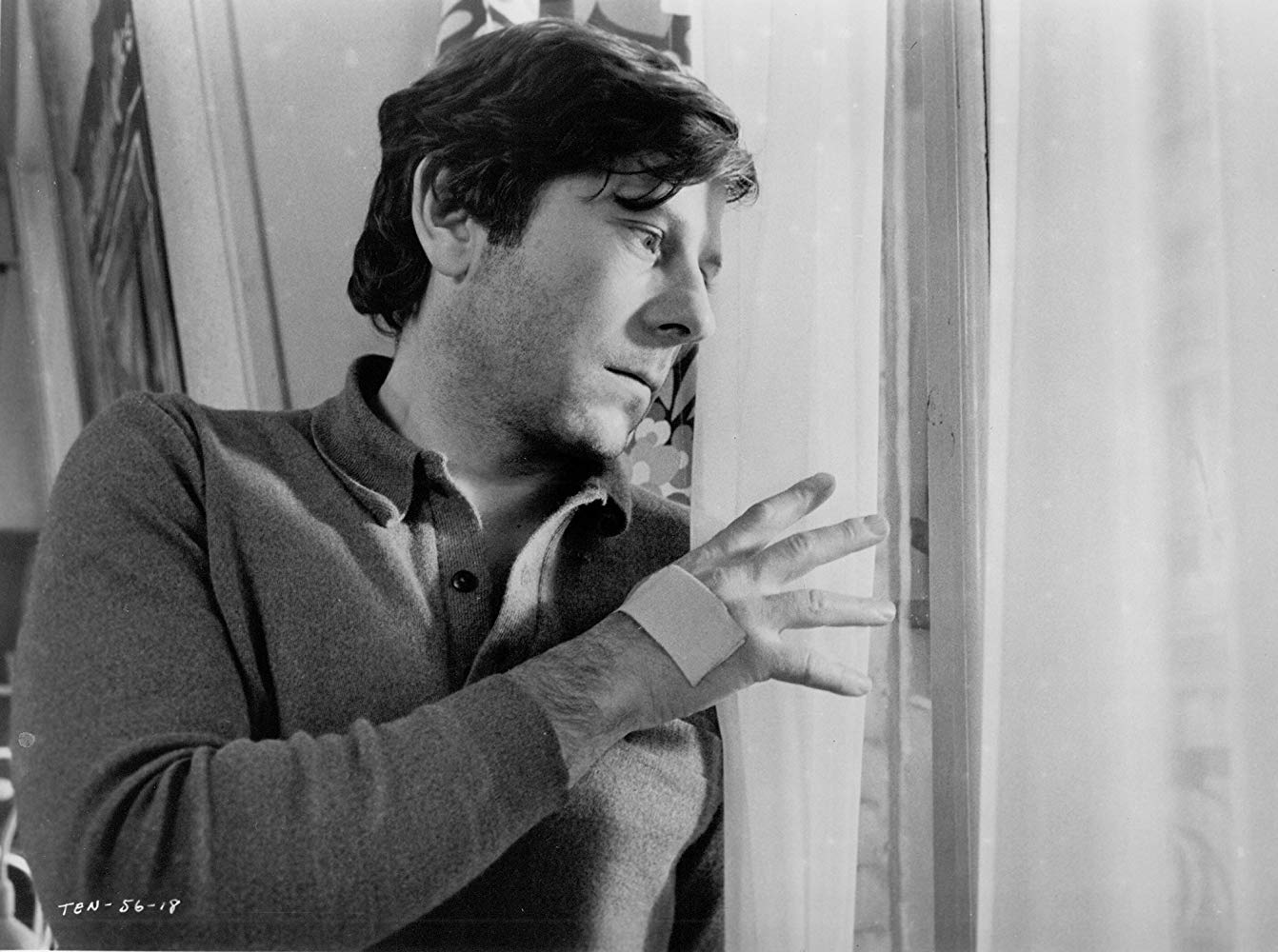Summary:
An examination of the life of Roman Polanski; his work, and the scandal that caused him to flee the United States and remain a fugitive for forty years.
My Thoughts:
Recently on the TMM podcast, Roman Polanski came up during in our discussion of his film: “Tess”. Polanski is a director that absolutely fascinates me for a number of reasons: first and foremost I love his work: “Rosemary’s Baby” is in my top twenty films of all time, and “Chinatown”, “The Tenant”, “Tess”, and “Repulsion” are all wonderful films too- even his lesser films like “The Fearless Vampire Killers” have moments that I find to be marvelously crafted. Another reason he fascinates me is his tragic life story. He was born just before world war two; his father and mother were both killed in the holocaust, and he was forced to live a life on the road during WWII. He took a beating so hard he came within an inch of his life; he was made to hold targets so that Nazi’s could shoot at him for target practice; and he even engaged in a firefight at Nazis as only a young boy. He rose from his poverty and horrible childhood to direct his first feature film, “Knife in the Water”, which was nominated for Best Foreign Film in 1964. But life threw another curve ball at him. While filming “The Fearless Vampire Killers”, Polanski met his future wife, Sharon Tate. When Tate was eight and a half months pregnant with Polanski’s child, members of Charlie Manson’s gang murdered her along with four others.
The tragedies of Polanski’s life are great and horrible, but they don’t excuse him for the crime that he committed: the rape of Samantha Geimer, whom was thirteen at the time of the incident. This documentary does not try to excuse Polanski for what he did, but it does cast the case it in a light that makes you take a second look at it a second time, and reexamine what you know and what you think you know about Polanski himself. That’s where this film succeeds the most: in showing you the little details of the case that might alter your view on what happened, that day in March of 1977. I want to make clear the fact that this documentary does not in any way excuse Polanski for what he did. Instead, it paints a portrait of who he was before the case happened, who he was during the case, and what events transpired that caused him to flee the country.
I feel like if I wanted to, I could go over the small details of the case and explain why this documentary changed my opinion on some things regarding the incident, but that would spoil the documentary itself. Instead, I’ll say that I recommend the documentary because it does a wonderful job of posing a few very important questions: Can we separate the art from the artist? Can the whole of a man be boiled down to his worst actions? And if justice is known to be corrupt, can that really be justice?
(SPOILERS IN THE FOLLOWING PARAGRAPH)
There are quite a few shocking revelations to this film, the most shocking of which for me was the fact that Polanski actually served time in prison, and was expected to get away with time served, but the case’s judge was obsessive with the media attention the case was bringing him, and he intended to instead throw the book at Polanski, giving him up to 50 years in prison, even though far less time had been agreed upon. The most shocking revelation to me was the fact that Polanski’s lawyer advised him to flee the country, and when interviewed for this documentary, the lawyer said if given a second chance, he would’ve advised him to do the same again. Samantha Geimer also forgave Polanski almost immediately after the incident (though that does not make it right), and the transcripts from both herself and Polanski cast the sexual encounter in a new light, one that almost makes the incident sound consensual. Again, this does not excuse that sort of behavior at all, but the way that both parties talk about the incident make it seem different than the way I’d heard it described before. Samantha was only thirteen when the incident happened- I am in no way making excuses for Polanski.
(SPOILERS END)
Verdict:
A good documentary not only answers a lot of questions, but it also provides the viewers with questions they must wrestle with themselves. This film does that perfectly: it provides information we might not have known about a famous court case, but it also begs the viewer to ask questions themselves. Do you think Roman has paid his debt to society? Do you think he should be allowed to continue making movies? Or do you think Hollywood and other movie moguls have a responsibility to silence his voice? Does art have anything to do with the victims of the artist? And can we respect one and not the other?
These are the sorts of questions this documentary raises. It might not be an incredibly happy topic, but its one that I think is important. If you’re a fan of film, and you yourself have wrestled with appreciating art and not artists, then perhaps this film will open some doors. It’s a fascinating film, even if the subject is a flawed person.
Review Written By:






